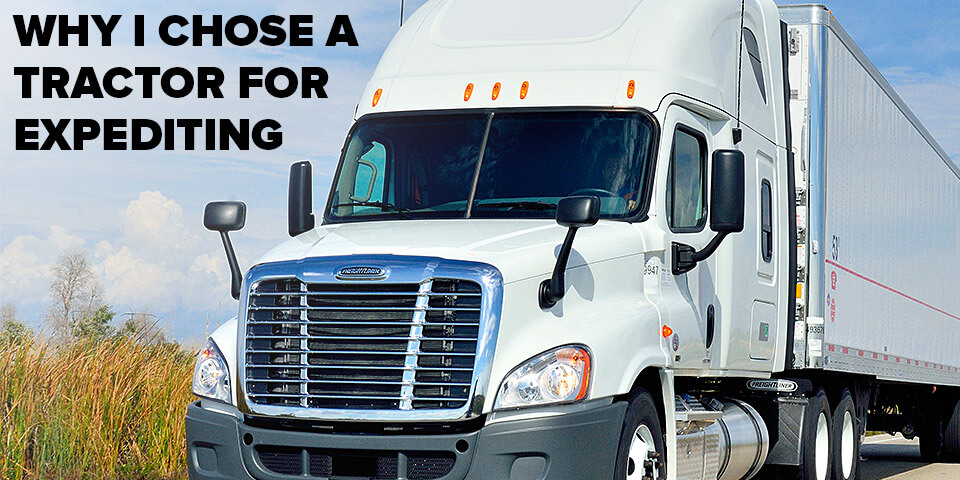In The News

Part 1: Why I Chose a Tractor for Expediting
This is the first installment of a three-part series to introduce you to each type of vehicle typically used for expediting. The next two articles in the series will address "Why I Chose a Straight Truck" and "Why I Chose a Cargo Van."
You see a lot of folks who get their start in expedited trucking with a smaller vehicle, such as a straight truck or cargo van. But not veteran expediters and fleet owners Daina and Norm St. Onge, who run the Knoxville, Tennessee-based Direct Service Line Transportation LLC and are leased to FedEx Custom Critical. They started in expediting as owner-operators in 2006 with a class 8 tractor, and today they own four tractors with 53-foot trailers.
So, why did they choose a tractor for expediting?
1. Familiarity.
Both Daina and Norm had decades of experience as company drivers hauling freight with a tractor-trailer. "For us, we chose a tractor because it's what we knew. And there was a lot of blood, sweat and tears involved because my husband taught me to drive a tractor. It's not like learning from the driving school instructors -- your husband can yell and scream at you," says Daina, with a light-hearted jab at Norm.
2. Versatility.
Daina says that the larger truck and trailer combination allows them to accept any type of load, large or small.
"Right now, in our reefer (refrigerated) trailers, we haul a lot of pharmaceuticals, very high-end electronics, and expensive artwork that need to be temperature-controlled and humidity-controlled. One of our trailers actually hauled the Shroud of Turin when it came to the U.S. for its tour. And after Hurricane Sandy hit the Northeast, we hauled everything needed to set up a complete medical hospital unit in the field," says Daina.
So, what is it about the typical cargo they haul that requires the larger tractor-trailer?
It's not that their loads always need the full space of a 53-foot trailer; it's that Daina and Norm have found that having the tractor-trailer gives them more flexibility with accepting freight. "We will haul full loads, where we're totally bought out. And we've gone across the country with only one pallet in our trailer. It's whatever the customer needs."
Daina continues: "With the tractor, we have more versatility. At our carrier, there are step vans, cargo vans, six-wheelers, ten-wheelers, and eighteen-wheelers. There are reefers (refrigerated bodies or trailers) and dry boxes. Well, with our tractor-trailer, we're all of those in one. No matter what the load, we can take it."
3. Revenue.
For Daina and Norm, the tractor's versatility has translated into higher revenue for their business.
"We actually tried smaller (straight) trucks for two years and then sold them," says Daina.
Why sell them?
"Revenue," says Daina. "We had two years of financials for comparison, as we were trying to figure out which way to go -- tractor or straight truck. But there's no bottom line number that says you're 'doing well.' It's a personal definition. When somebody thinks they're doing well, and they're making $125,000 a year, and your definition of doing well is $275,000, which way are you going? It's stressful no matter which way you go. But we determined that, for us, the bigger trucks help us meet our definition."
And that's the key point to remember. When evaluating any type of vehicle for expediting, there's no one-size-fits-all answer. You're making a personal decision based on which vehicle will be best for your unique situation, goals and budget.
